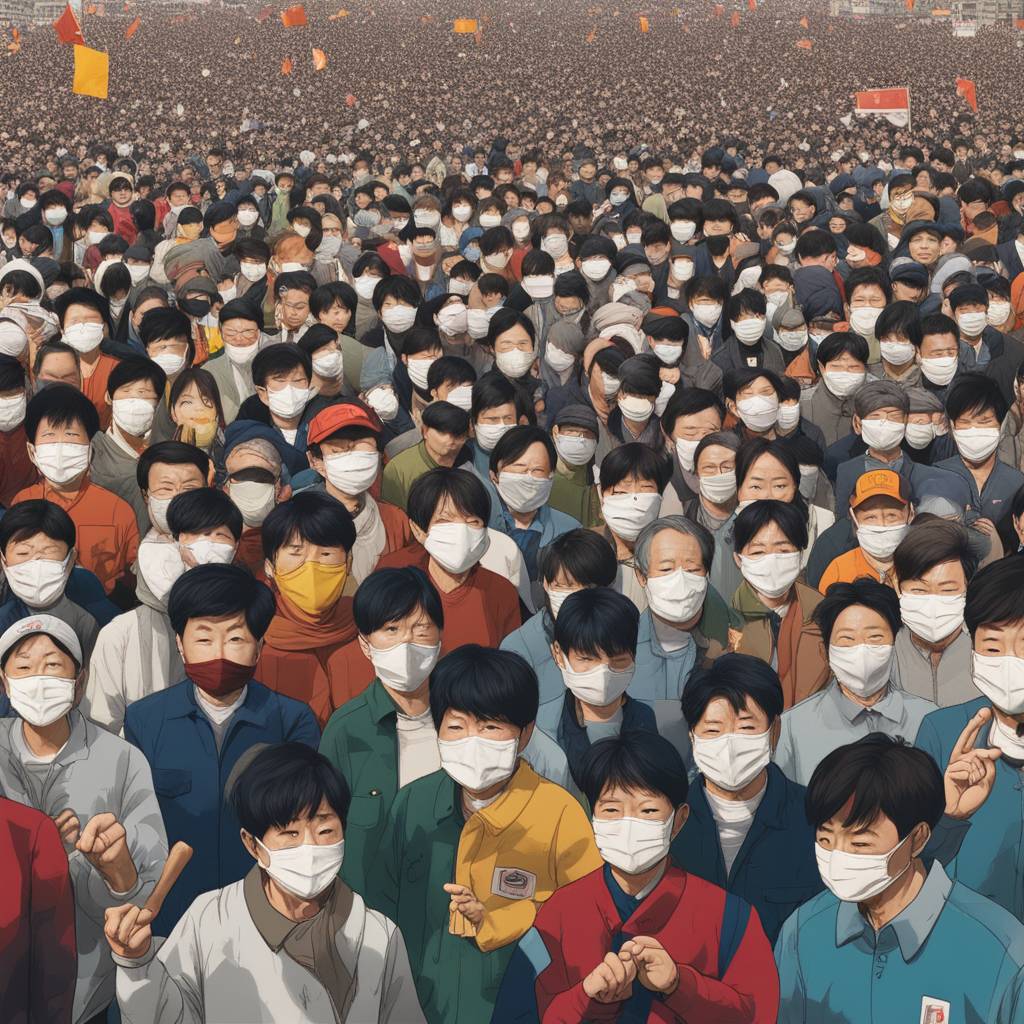popular former prosecutor. Cho, 35, who works in public relations, is one of many young South Koreans disenchanted with the country’s political landscape and looking for new options. The upcoming elections on April 15 are crucial for shaping the future of the country, as voters decide on members of the National Assembly.
The ruling Democratic Party is facing backlash over a series of issues, including an economic slowdown and allegations of corruption. Many voters, like Cho, are frustrated with the current government and are turning to alternative parties for change. The People Power Party, led by former prosecutor Yoon Suk Yeol, has gained traction in recent weeks with promises to crack down on corruption and restore integrity in South Korea’s politics.
Yoon Suk Yeol’s party, the People Power Party, is positioning itself as a viable alternative to the ruling Democratic Party. The party’s focus on anti-corruption measures has struck a chord with many voters who are tired of political scandals and want to see meaningful change in the country’s government. Yoon’s background as a prosecutor gives him credibility in the fight against corruption and has helped him win support from a wide range of voters, including those disillusioned with the current political establishment.
Despite the rise of alternative parties like the People Power Party, the ruling Democratic Party still maintains a significant lead in the polls. President Moon Jae-in, who leads the Democratic Party, has faced criticism for his handling of the economy and his perceived closeness to North Korea. However, the party still retains a loyal base of supporters who believe in its progressive ideals and vision for the country’s future.
With just days left until the elections, South Korea is witnessing a surge in political activism and engagement. Young voters, in particular, are turning out in record numbers to participate in the democratic process and make their voices heard. The outcome of the elections could have far-reaching implications for the country’s future direction, with potential shifts in policy and governance depending on the results.
As South Korea prepares to head to the polls on April 15, the country is at a crossroads in its political landscape. Voters like Cho Young-moon are seeking change and are willing to support new parties that offer a fresh approach to governance. The elections will not only determine the makeup of the National Assembly but also send a message about the desires and aspirations of the South Korean people for their country’s future.













